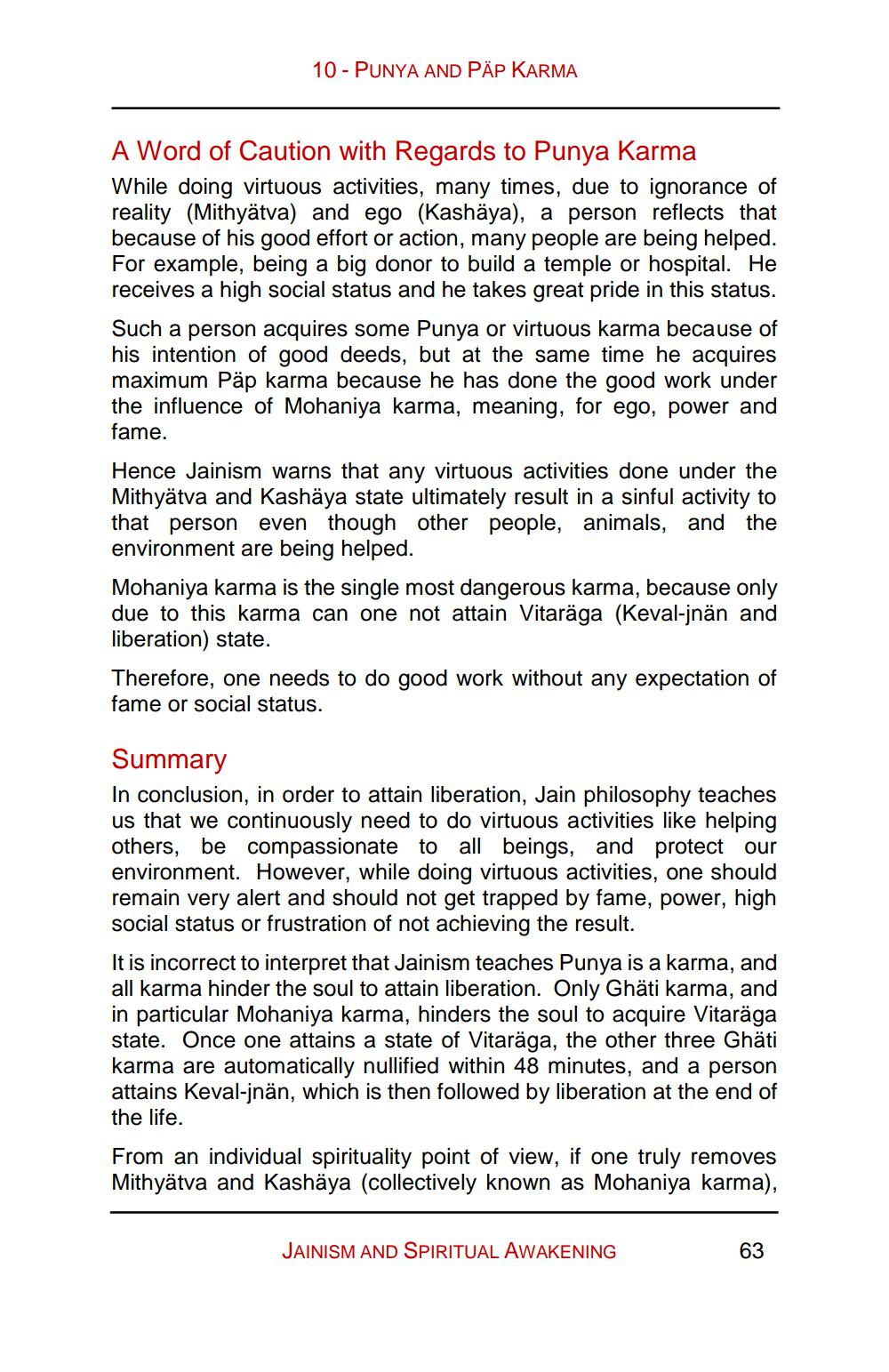________________
10-PUNYA AND PÄP KARMA
A Word of Caution with Regards to Punya Karma
While doing virtuous activities, many times, due to ignorance of reality (Mithyätva) and ego (Kashaya), a person reflects that because of his good effort or action, many people are being helped. For example, being a big donor to build a temple or hospital. He receives a high social status and he takes great pride in this status. Such a person acquires some Punya or virtuous karma because of his intention of good deeds, but at the same time he acquires maximum Päp karma because he has done the good work under the influence of Mohaniya karma, meaning, for ego, power and fame.
Hence Jainism warns that any virtuous activities done under the Mithyätva and Kashaya state ultimately result in a sinful activity to that person even though other people, animals, and the environment are being helped.
Mohaniya karma is the single most dangerous karma, because only due to this karma can one not attain Vitaräga (Keval-jnän and liberation) state.
Therefore, one needs to do good work without any expectation of fame or social status.
Summary
In conclusion, in order to attain liberation, Jain philosophy teaches us that we continuously need to do virtuous activities like helping others, be compassionate to all beings, and protect our environment. However, while doing virtuous activities, one should remain very alert and should not get trapped by fame, power, high social status or frustration of not achieving the result.
It is incorrect to interpret that Jainism teaches Punya is a karma, and all karma hinder the soul to attain liberation. Only Ghäti karma, and in particular Mohaniya karma, hinders the soul to acquire Vitaräga state. Once one attains a state of Vitaräga, the other three Ghäti karma are automatically nullified within 48 minutes, and a person attains Keval-jnän, which is then followed by liberation at the end of the life.
From an individual spirituality point of view, if one truly removes Mithyätva and Kashaya (collectively known as Mohaniya karma),
JAINISM AND SPIRITUAL AWAKENING
63




